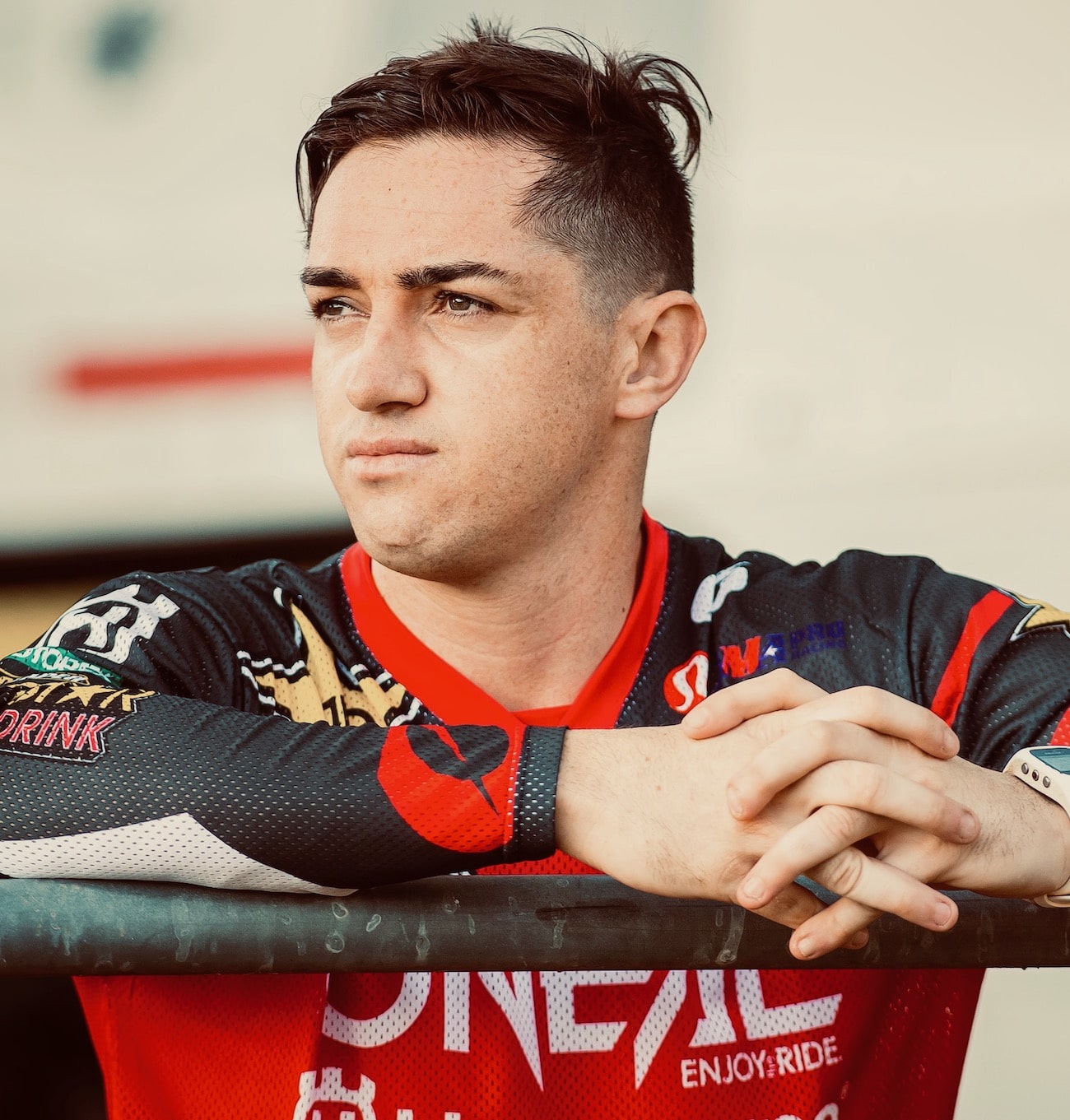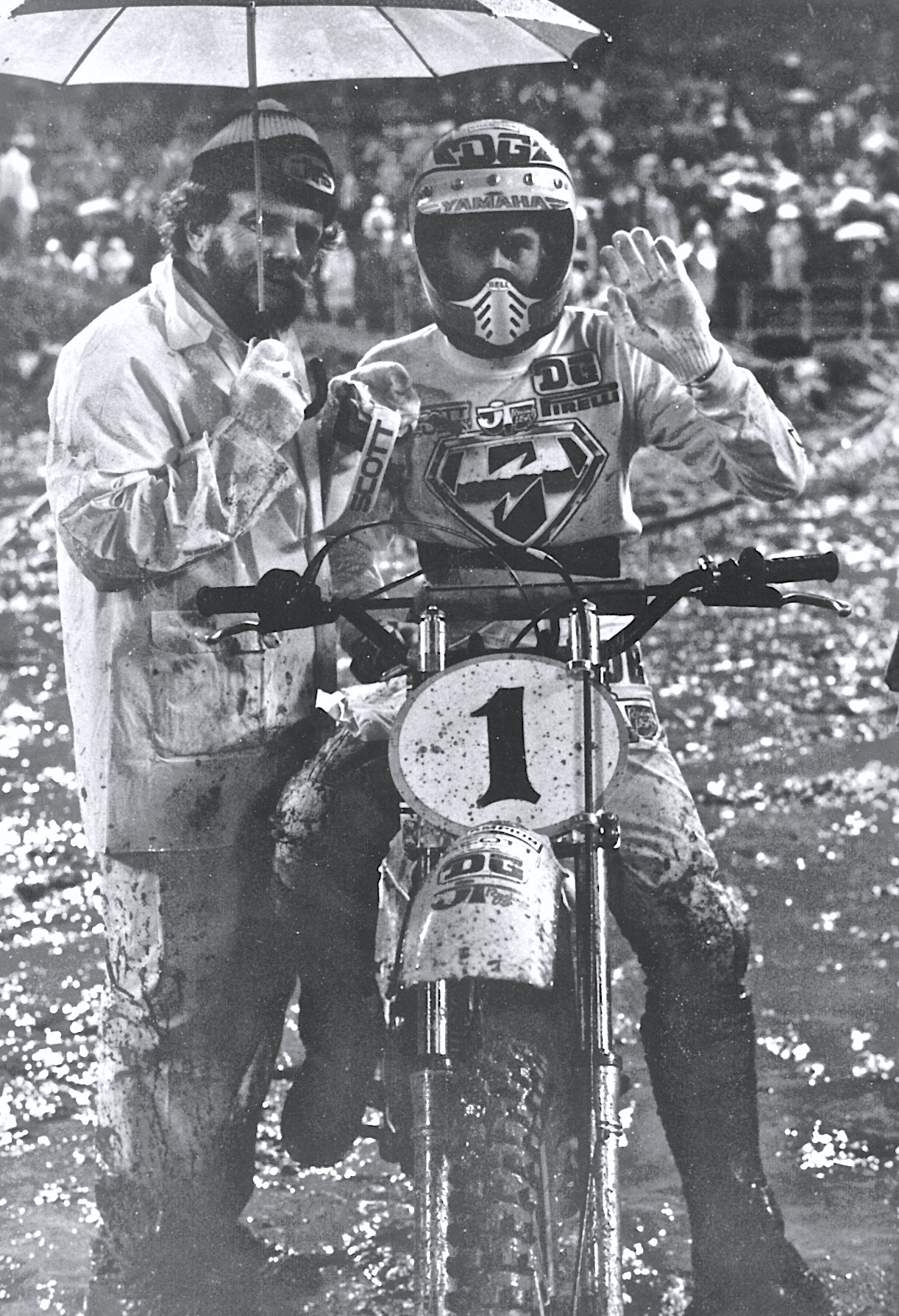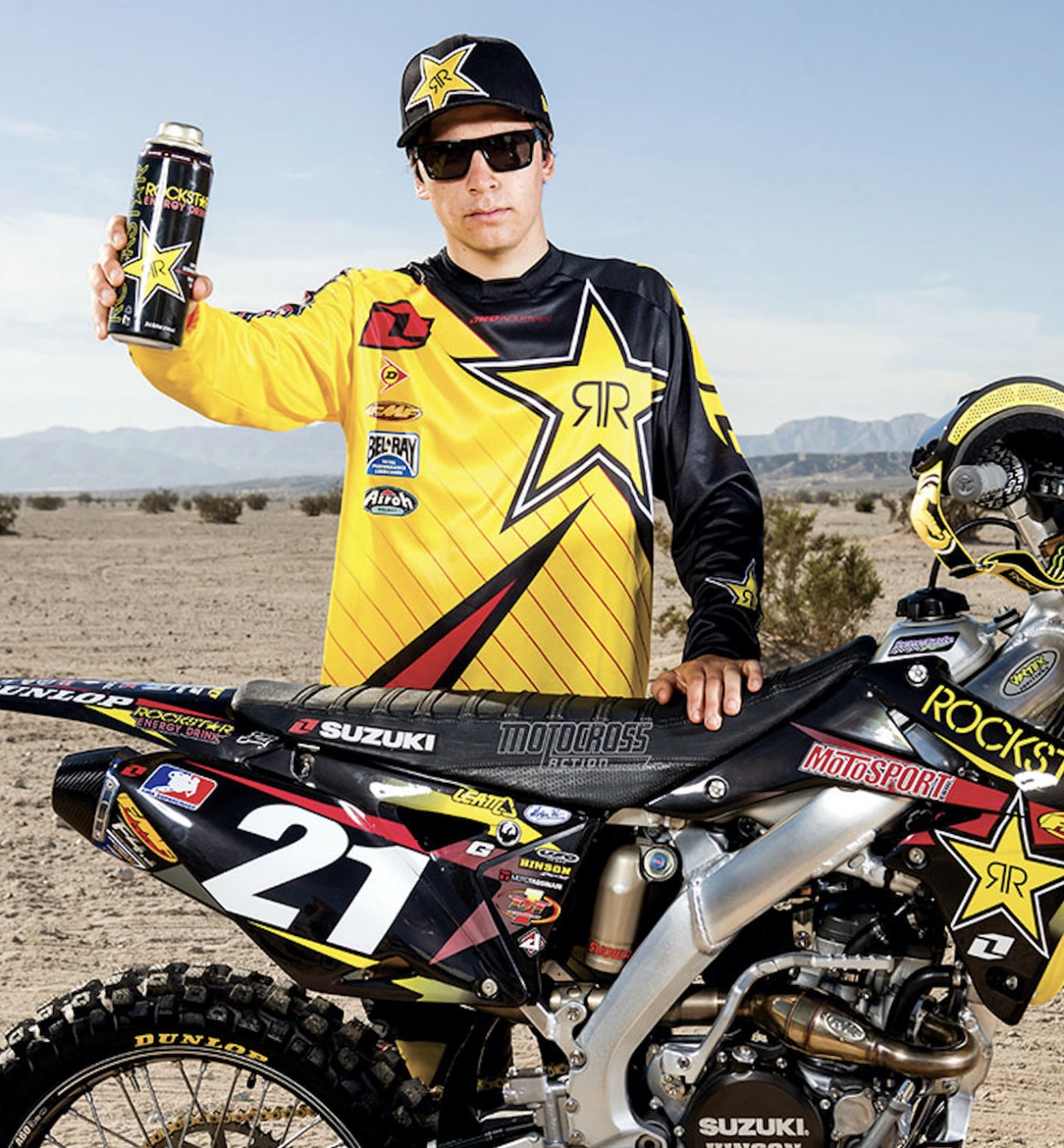HOW TO FIND A SPONSOR & KEEP IT
Don’t be afraid to fail. In your sponsorship journey, you will most likely fail more than you will succeed. To find a sponsor, you’ll have to reach out to people—lots of people. You need to stand out from all the other racers asking for help. It is possible to find a sponsor if you have average results, but almost impossible to find a sponsor if the man doing the hiring doesn’t like you. Your social media sites are important, but if you use foul language, run questionable photos or espouse negativity on your Instagram and Facebook pages, you will find doors closing. And don’t think that they won’t look. They will. Every major corporation searches the internet to find out about a potential hire. More than a few riders have lost important deals because of what they post.
Know your reach. Find out who you have influence over and get to know those people. Learn about how you can promote your potential sponsor to this demographic. The more you know about the people you have influence over, the more information you’ll be able to provide to the potential sponsor, and the more confidence you will have approaching different companies.
Ask responsibly. Be honest with yourself. If you were a brand, would you sponsor you? Make sure your intentions are honorable, and try not to ask for more than you deserve. If it comes down to a choice between Jason Anderson and you, don’t get your feelings hurt when they go with Jason. You have to bring value to the deal. Before you make your pitch, ask yourself, “Why should they sponsor me?”
Ask the right person. You don’t want to put a bunch of work into a proposal and have it fall on deaf ears. Unfortunately, this happens all the time. Try not to send your proposal to the customer service e-mail address. Don’t tell the lady at the front desk your life story over the phone. You need to talk to the one person who can say yes or no. It can be hard to break through the barrier and get your proposal into the right hands. Start by searching the website for the phone number or e-mail of the company’s sponsorship or marketing manager. If you can’t find their information, call and ask that lady at the front desk for the marketing department.
 Promote your sponsor’s product to your best ability, just be sure to hold up the can so that no one can see what it really holds.
Promote your sponsor’s product to your best ability, just be sure to hold up the can so that no one can see what it really holds.
Promote. If you have a sponsor currently, promote them, even if they aren’t paying you or giving you the deals you’d like. Promote them to the best of your ability. This will help when you’re asking for another sponsor, and it will teach you how to promote your future sponsor, who will be expecting more from you. Whatever you do, don’t bad mouth your current sponsor when talking to a potential sponsor. When you do that, they assume you will be badmouthing them in the future.
 Friendly riders like Dean Wilson can get sponsors because he promotes their product well. In fact, O’Neal sponsored Dean a couple years ago and then hired him back for a second time.
Friendly riders like Dean Wilson can get sponsors because he promotes their product well. In fact, O’Neal sponsored Dean a couple years ago and then hired him back for a second time.
Proposal. It’s important to have a proposal, and it’s equally important to tailor your proposal to the brand that you wish to be sponsored by. The more specific you are, the better. Call the company ahead of time to ask them if they currently sponsor anyone or if they would be interested. If you talk to the right person and they are clear that they don’t have any sponsorship opportunities, move on. If they are interested, then you can follow up with questions to learn about their current sponsorships and how to create a proposal that is appealing to them. Then go back to the drawing board and make it happen.
If the companies you approach are turning you away, ask why! Learn from your mistakes. Maybe you’re contacting companies that aren’t interested in sponsoring up-and-coming riders. Maybe the company is too big and they don’t see value in helping you. Maybe the company is too small and they can’t afford to help. Or maybe there’s something wrong with your proposal and you need to adjust it before you try again with another company.
 This looks like a happy sponsorship moment as Bob Hannah celebrates winning the muddy Atlanta Supercross. What you don’t see is that Yamaha team manager Ken Clark is bristling at the fact that Bob refused to wear a Yamaha logo on his jersey. Instead he wore his SuperHannah JT jersey.
This looks like a happy sponsorship moment as Bob Hannah celebrates winning the muddy Atlanta Supercross. What you don’t see is that Yamaha team manager Ken Clark is bristling at the fact that Bob refused to wear a Yamaha logo on his jersey. Instead he wore his SuperHannah JT jersey.
Results. It’s not always about how fast you are or how many races you have won, but that depends on whom you’re asking. Some companies are only looking for wins, and other companies couldn’t care less. For a lot of brands, it’s more about who you are, your social media followers, what you represent and what kind of value you can bring them.
References, relationships and loyalty. It’s always best to know somebody who has an in at the company to put a good word in for you. For most riders, this is the hardest part. If you are looking for a sponsor and you don’t know where to start, ask around. Think about who you know that represents a brand you like and start there. Then, once you have a sponsor, be very careful not to use any products or services that could be conflicting with your new sponsor. And finally, try to remain loyal. A track record of loyalty to a sponsor will help you build your brand and it will help you when searching for more support in the future. A company that has been with you for an extended period of time is more likely to step up and support you with what you need in the long run.
 Riders have to be more than rolling billboards. They have to display their value by being super fast, super friendly or a super ambassador.
Riders have to be more than rolling billboards. They have to display their value by being super fast, super friendly or a super ambassador.
Show your value. There are three ways that your relationship with your sponsor can provide them value. (a) You promote their brand, which in turn makes them money. (b) You provide your sponsor with a valuable experience. It could be VIP treatment at your next race or helping test products, or being the ultimate brand ambassador. (c) If you’re lucky, you may be able to find people who will sponsor you because they want to be a part of what you represent, and they won’t be worried about a return on their investment. Grandparents, aunts and uncles usually fall into this category.






Comments are closed.